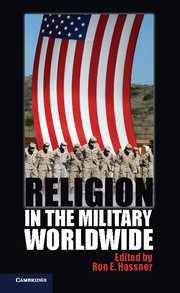4 - Pakistan
Published online by Cambridge University Press: 05 June 2014
Summary
Policy makers and analysts continue to be concerned about the purported Islamization of Pakistan, particularly in the Pakistan Army. This concern, which is often seen as concurrent with deepening anti-Americanism in the country and the armed forces, is undergirded by the army’s six-decade-long reliance on Islamist militants to prosecute its interests in India and Afghanistan. These militants can be found in the Afghan Taliban, the Lashkar-e-Taiba, Jaish-e-Mohammed, and dozens of other groups terrorizing the region. The United States has long worried about these groups operating in India, because a terrorist attack in that country remains the most likely precipitant of an Indo-Pakistan war, with possible nuclear escalation – either advertently or inadvertently. Some analysts and policy makers worry (with less justification) that Islamist militants will acquire nuclear technology or related assets either by stealth or through active or passive facilitation of the Pakistan Army. Recent U.S. legislation aims to reverse many of these ostensibly worrying trends.
Some analysts of Pakistan contend that the lineaments of Pakistan’s future Islamization can be traced to the arguments of early proponents of an independent Pakistan who believed there was a need for an independent Muslim state. Thus, even before independence, Pakistan was already conceived as a homeland for South Asia’s Muslims. Other analysts claim that Islamization began in the first decade after independence as Islamists began vying for greater influence over Pakistan’s developing state apparatuses. Still others argue that Islamization did not occur to a significant degree until much later.
- Type
- Chapter
- Information
- Religion in the Military Worldwide , pp. 91 - 113Publisher: Cambridge University PressPrint publication year: 2013
References
- 2
- Cited by



